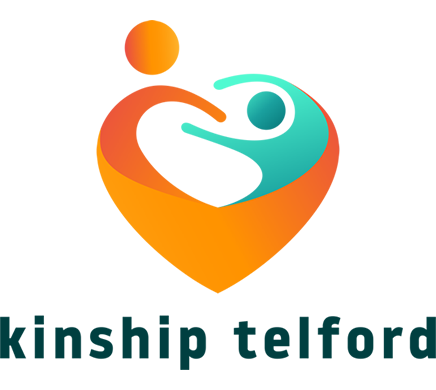Glossary
Adoption: A formal legal process in which all the right and responsibilities relating to a child are transferred to the adoptive parents.
Advocacy: This involves supporting and promoting the rights and needs of kinship carers and the children they care for.
Child Arrangement Order (CAO): (previously known as a Residence Order) - This is a legal order which decides on where the child will live and who they spend time with.
Connected person: This includes relatives, friends, and other persons connected to the child.
Co-production: A collaborative approach where kinship carers, children, and professionals work together to design and improve services, ensuring lived experience informs policy and practice.
Family Group Decision Making: A process where extended family members come together to make decisions about the care and welfare of a child.
Informal Kinship Care: An arrangement where a child is cared for by a relative or friend without the involvement of the local authority. These are private arrangements made between the parent(s) and the carer.
Kinship Care: This is when children are cared for by members of their extended families, friends, or other people who are connected with them for a variety of reasons in different arrangements.
Kinship Foster Carer: Arrangements made for children cared for by the local authority (in care), where the child is placed by the local authority, and they have approved the carer who is a relative or friend of the family. The child remains looked after unless a Child Arrangements Order or Special Guardianship order is made. Where the child remains looked after, the carer remains as a kinship foster carer.
Local Offer: The support and services available to kinship carers within a specific local authority.
Operations Board: A governance group comprising kinship carers and practitioners that oversees the development and implementation of the Kinship Local Offer.
Parental responsibility: The legal right to make decisions about a child’s care and how they are raised.
Private fostering: An arrangement made by the family about the care of a child or young person under 16 (or under 18 if they have a disability), who is cared for by someone who is not a parent or close relative and with the intention that it should last for 28 days or more. The local authority should be informed of this arrangement so that they can assess whether it is a safe and suitable arrangement, but the decision is made by the parent or person with parental responsibility.
Reunification: The process of returning a child to their biological parents after they have been in foster or kinship care.
Special Educational Needs and Disabilities (SEND): This is a legal term for a child or young person who has a learning difficulty or disability.
Special Guardianship Order (SGO): A court order that gives a person parental responsibility for a child or young person, allowing them to care for and make decisions about the child/young person’s upbringing until they turn 18.
Therapeutic Offer: Support services that provide emotional and psychological help to children and carers, often including counselling, play therapy, or trauma-informed care approaches.
Virtual School: This is a team of highly qualified, experienced and dedicated educational professionals. They work with all relevant partners in education, health and social care to ensure that children’s opportunities in school are the best they can be.
